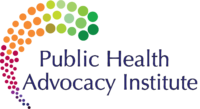By Cara Wilking, JD, Consulting Attorney to PHAI
Breastfeeding protects against overweight and obesity, asthma, eczema, and type-II diabetes, and has long-term health benefits for women. The health benefits of breastfeeding are so valuable that in 1981, the World Health Organization established the International Code of Marketing of Breast-Milk Substitutes (WHO Code) that prohibits marketing infant formula to the public. The U.S. has not adopted the WHO Code and currently has few protections from most digital marketing to adults. As a result, the vast amount of consumer data expectant parents and infant caregivers generate as they navigate daily life can be used to target them with digital advertising for infant formula.
This report explores the policy frameworks and self-regulatory bodies that govern the use of sensitive consumer information about pregnancy and infant feeding used to market infant formula. It addresses the following questions:
- How do marketers identify expectant parents and infant caregivers?
- What digital marketing tactics are used to promote infant formula?
- What laws and policies govern the collection and use of consumers’ pregnancy and infant-feeding-related information?
- What role do company privacy policies and user agreements play?
- How can self-regulation be used to limit infant formula marketing?
The report contains recommendations for how to better protect the public from infant formula marketing by the infant formula industry and through third-party retailers and digital platforms like Facebook and Google. Issue briefs on the topics of Consumer Privacy, Self-Regulation and Recommendations for Action summarize key findings from the full report.
- IF Digital Marketing Full Report Nov 2020 (Full Report)
- IF Privacy Policies Brief Nov 2020 (Issue Brief)
- IF Recommendations for Action Brief Nov 2020 (Issue Brief)
- IF Self Reg Brief Nov 2020 (Issue Brief)
This work was supported by Healthy Eating Research, a national program of the Robert Wood Johnson Foundation
